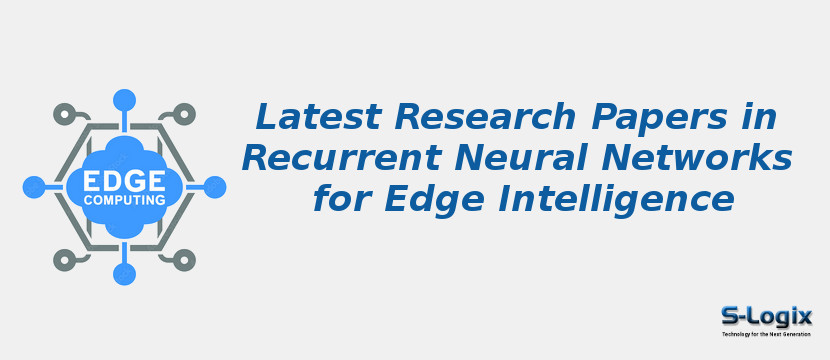Recurrent Neural Networks (RNNs) for edge intelligence have become a prominent research area, focusing on enabling real-time sequence modeling, prediction, and decision-making directly at the network edge. Research papers in this domain explore the deployment of RNNs, Long Short-Term Memory (LSTM), and Gated Recurrent Unit (GRU) architectures on edge devices to process temporal data streams generated by IoT sensors, autonomous vehicles, industrial systems, and smart cities. Studies emphasize lightweight and optimized RNN models to address the computational, memory, and energy constraints of edge nodes, using techniques such as model compression, pruning, quantization, and edge–cloud co-inference. Recent works investigate RNN-based applications in predictive maintenance, traffic flow prediction, anomaly detection, energy management, and context-aware service adaptation, leveraging real-time analytics at the edge. Additionally, security- and privacy-preserving approaches, including federated learning and encryption techniques, are integrated to protect sensitive data while maintaining model performance. Overall, research on RNNs for edge intelligence enables intelligent, adaptive, and efficient processing of sequential data, bridging the gap between real-time data generation and actionable insights in next-generation edge computing systems.
